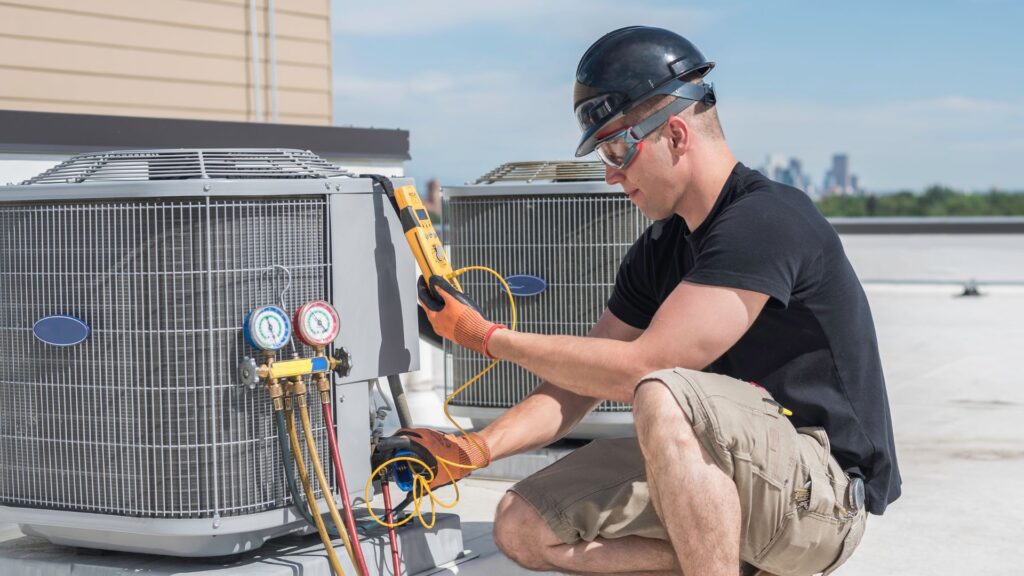The Importance of Bookkeeping for HVAC Businesses

Running an HVAC business means being on the move—servicing calls, managing technicians, ordering parts, and keeping customers happy. But in the middle of all that action, one area that often gets neglected is bookkeeping.
And here’s the thing: even a business with steady jobs and great service can struggle to stay profitable without solid financial tracking.
At TruePoint Accounting, we help HVAC business owners take control of their numbers—so they can grow with confidence. Here’s why bookkeeping matters more than you think and how it can power long-term success for your HVAC business.
💡 Why Bookkeeping Is Critical for HVAC Companies
HVAC businesses deal with:
Seasonal revenue fluctuations
Labor-intensive job costs
Inventory, equipment, and vehicle expenses
Subcontractor payments
Recurring and emergency service calls
Without organized bookkeeping, it’s hard to answer critical questions like:
❓ Are we charging enough per job?
❓ Where is our profit going?
❓ Are we ready for tax season or a loan application?
✅ 1. Track Profitability by Job and Service Type
Not all service calls bring in the same profit. Some maintenance contracts are consistent, while installation jobs carry more risk and cost.
Good bookkeeping allows you to:
Track revenue and expenses per job
Compare profitability by job type or customer
Adjust pricing based on labor and material costs
💡 Example: An HVAC company realized they were underpricing mini-split installs after reviewing job costing reports—and increased rates to protect their margins.
✅ 2. Manage Cash Flow During Seasonal Highs and Lows
Many HVAC companies experience slow winters and busy summers. Without cash flow planning, a strong season can’t carry you through a slow one.
Bookkeeping helps you:
Forecast cash flow using historical trends
Budget for the slow season
Identify when to invest in marketing or staff
💡 Example: A business owner reviewed their summer cash flow and set aside a winter reserve fund—avoiding layoffs during the slow season.
✅ 3. Stay on Top of Inventory and Equipment Costs
Tools, parts, refrigerant, and supplies add up fast—and if you’re not tracking them, they can eat into profits without you noticing.
With bookkeeping, you can:
Monitor supply costs and identify vendor changes
Track usage across jobs
Detect theft or loss quickly
💡 Example: A technician was using significantly more refrigerant than others. After reviewing inventory records, management discovered a leak and fixed it—saving hundreds a month.
✅ 4. Streamline Payroll and Contractor Payments
HVAC businesses often pay employees hourly and work with subcontractors. Payroll mistakes can lead to tax issues, missed payments, or employee dissatisfaction.
Bookkeeping best practices include:
Accurately tracking hours worked per job
Categorizing payroll costs separately
Issuing 1099s for subcontractors on time
💡 Example: A company using integrated payroll and bookkeeping software avoided a $500 IRS penalty for late 1099 filing.
✅ 5. Make Tax Time Easier—and Less Expensive
HVAC companies have plenty of deductible expenses—but without solid books, those savings are often missed.
Bookkeeping helps you track:
Mileage and fuel
Tools and parts
Equipment depreciation
Uniforms and training
Software subscriptions
💡 Example: A business owner saved over $7,000 in taxes by properly categorizing tools and truck expenses—thanks to clean books and digital receipts.
🔍 Final Thoughts: Bookkeeping Builds a Stronger HVAC Business
You know how to keep buildings comfortable—but to keep your business financially healthy, you need reliable numbers. Bookkeeping isn’t just about compliance—it’s about knowing where you stand, where your money is going, and how to grow strategically.
At TruePoint Accounting, we specialize in helping HVAC contractors clean up their books, stay organized, and operate with confidence—season after season.
💬 Want to simplify your finances and improve your bottom line? Visit TruePoint Accounting to book a free consultation.
📣 HVAC pros—what’s your biggest financial headache right now? Drop it in the comments and let’s tackle it together! ❄️🔥📊
